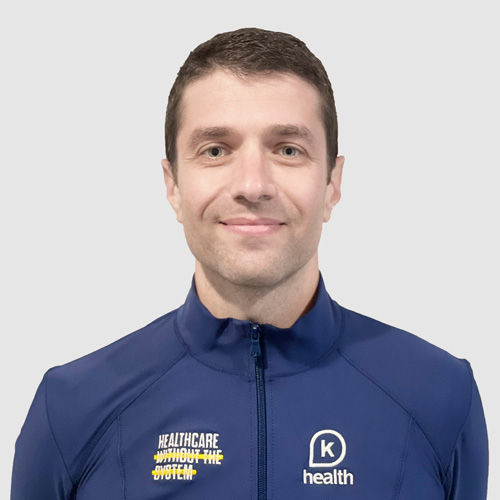First thing’s first: COVID-19 is still here and we do not encourage large gatherings for watching the big game. But we do encourage you to carry on traditions from Super Bowls past when it comes to the food – food is part of the fun! We’re here to help and provide tips to prevent the upset stomach on Monday morning.
Acid Reflux
What is it? Acid reflux occurs when stomach acid backs up into your esophagus, which is the muscular tube that carries food from your mouth to your stomach. This can cause a burning sensation in your chest, bitter taste in your mouth, or excessive belching. For some the heartburn feeling is frequent enough to impact sleep, breathing and swallowing.
What causes it? The discomfort of reflux is often triggered by eating certain foods, overeating, or lying down too soon after eating. You may see commercials for heartburn medicines during football games because many heartburn trigger-foods go hand-in-hand with football:
- High-fat foods such as fatty cuts of meat, french fries, onion rings
- Spicy foods
- Salty foods
- Tomatoes and tomato-based foods
- Carbonated beverages
- Alcohol
- Onions
- Garlic
- Chocolate
- Coffee
- Citrus
- Mint and mint-flavored products (such as mint gum)
- Ice cream
- Whole milk
How can I get rid of acid reflux and prevent myself from getting it again? Avoiding specific foods aid in prevention, but that’s not the only method. Some foods actually alleviate heartburn, such as whole grains, lean meats, healthy fats and, and non-citrus fruits. In addition to what you eat, when and how you eat are also relevant: it’s recommended to slow down while eating, and not eat too close to bedtime (or laying-on-the-couch-time), to allow your body to properly digest.
The Stomach Bug
What is it? The stomach virus, stomach flu or stomach bug are all ways we refer to a condition called gastroenteritis. It’s an intestinal infection marked by watery diarrhea, abdominal cramps, nausea or vomiting, and sometimes fever. It is usually not serious and you can expect to recover fully within a few days.
What causes it? The stomach flu is caused by a virus that’s transmitted from person to person. Perhaps you shared a drink with someone who had the virus or were in close proximity to them. Most stomach bugs are highly contagious even before any symptoms have appeared, and you can even catch it by touching something that an infected person touched.
How can I get rid of this stomach pain and prevent myself from getting it again? In most cases, the stomach bug is self-limited, and you should focus on supporting your body while it fights off the infection. Mostly importantly, drink plenty of fluids! When you are ready to eat, use the BRAT diet as guidance: bananas, rice, apples, and toast. While you don’t need to eat only those four foods, the idea is to eat foods that are easy to digest, low in fiber and high in starch so that you can replace the nutrients and calories that you have lost. Avoid food and drinks that are high in sugar, high-fat and high-fiber, because they’re harder to digest. It’s also a good idea to stay away from dairy products, spicy foods, or greasy foods until you’ve fully regained your strength. So basically, avoid the foods that you ate yesterday while watching the Super Bowl!
Because stomach flu is caused by a virus, antibiotics do not help get rid of the infection. If a doctor suspects that there is a bacterial cause, then lab tests can be ordered and antibiotics prescribed if necessary. The best ways to prevent contracting a stomach virus are similar to what we’ve been practicing during the COVID-19 pandemic:
- Wash your hands
- If you are sick, stay home
- Don’t share eating utensils or towels
- Keep common areas in your home clean and disinfected
Food Poisoning
What is it? Food poisoning is an illness that comes from eating food that’s been contaminated by a bacteria, virus or parasite. This is also fairly common and usually resolves within one to two days, although there are some types of food poisoning that require specific and immediate treatment.
How does food become contaminated? Contamination can happen at any point during the production, processing or cooking of food.
Contamination can happen at any point during the production, processing or cooking of food:
- Eggs
- Poultry
- Meat
- Unpasteurized milk
- Cheese
- Unwashed raw fruits and vegetables
- Nuts
- Spices
How can I get rid of this stomach pain and prevent myself from getting it again? It may not actually matter which bacteria or virus has caused your food poisoning since, unless it is very severe, there is not much of a difference in treatment.
As the symptoms are similar to stomach virus (though come on more suddenly), food poisoning treatment is typically rest and fluids. Rule of thumb: drink as much fluid as you release. If you are unable to hold down fluids or unable to keep with your fluid losses, are feeling dizzy or lightheaded, or suspect your food poisoning is severe, you can always text with a doctor in the K Health app, who can provide guidance and suggestions for treatment if needed. Pregnant women who contract listeriosis require antibiotics immediately.
To prevent food poisoning:
- Make sure all food preparation surfaces, equipment and your hands are clean
- Cook meats, seafood, and poultry fully
- Refrigerate perishables within an hour
- Trust your instincts and toss any food that looks or smells off
- Pay attention to any food recalls
Learn more about your symptoms, chat with a doctor, and get necessary prescriptions, including refills, anytime on the K Health app.

 Medically reviewed
Medically reviewed